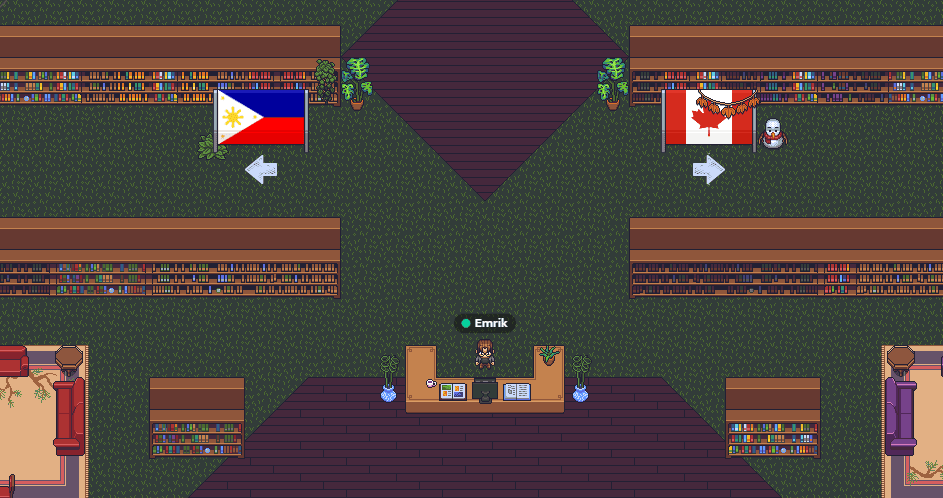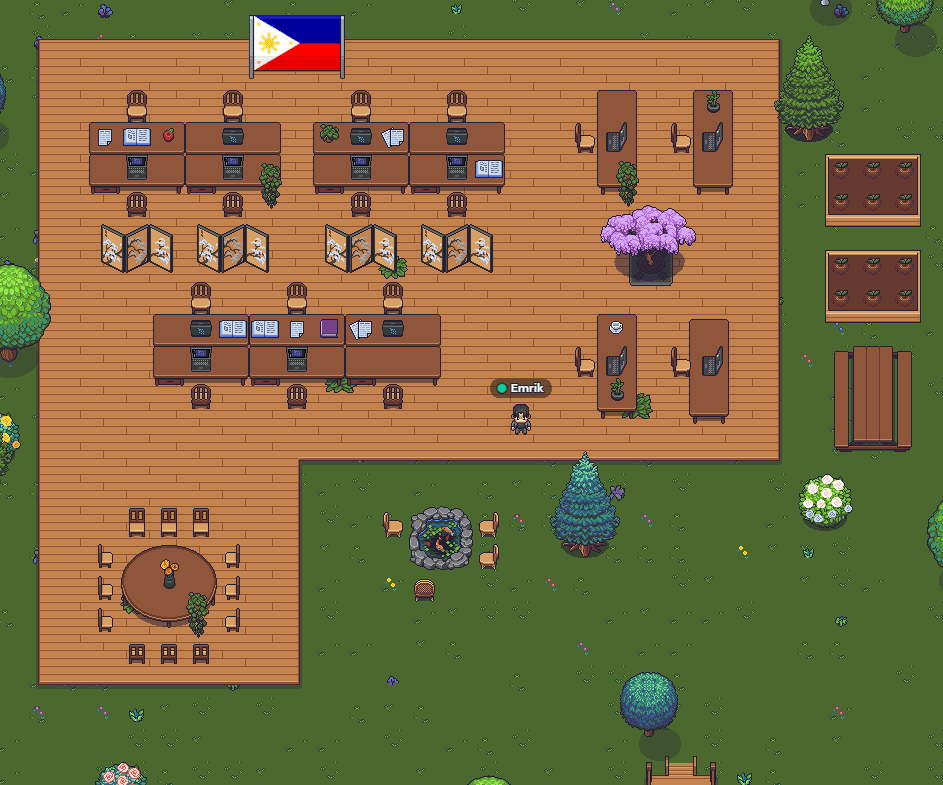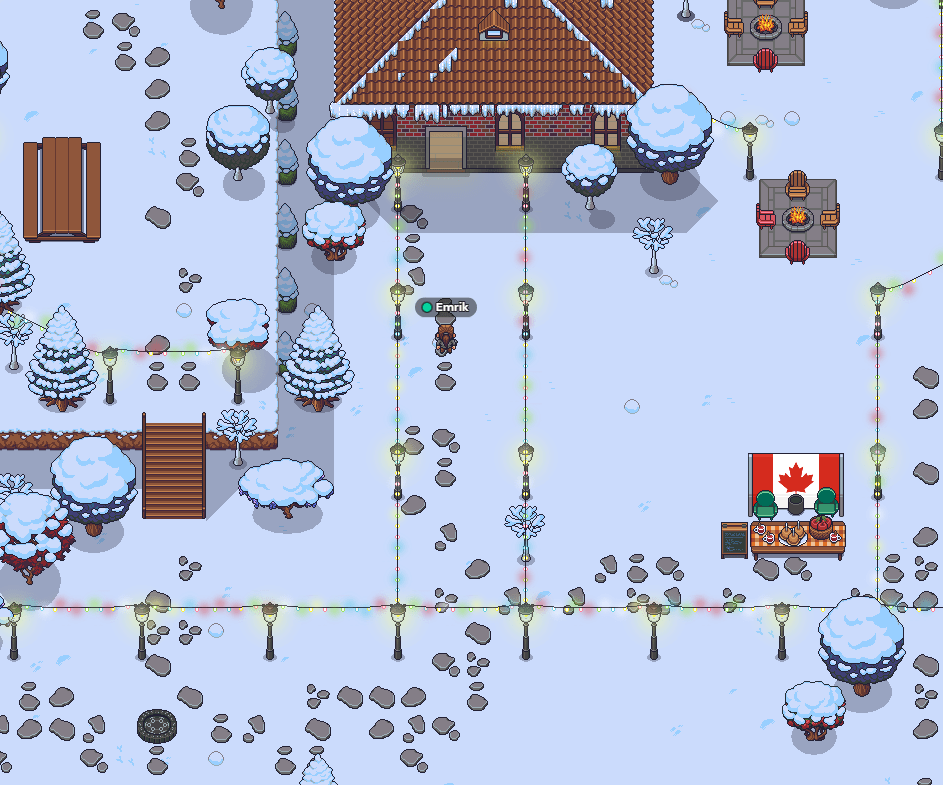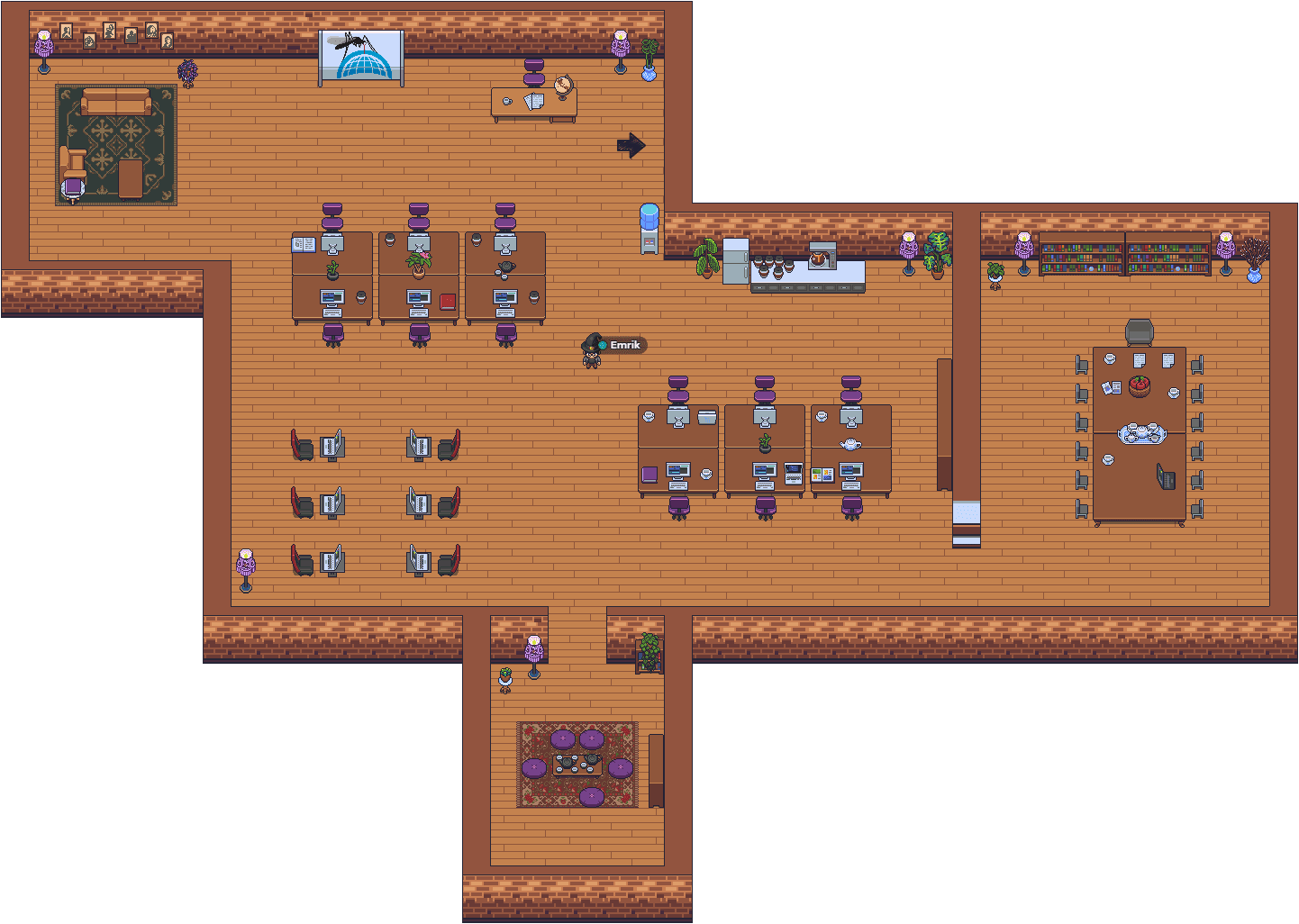NOTE: I no longer offer to build houses for the needy, but the place is still up and worth checking out. : )
Arepo’s EAGT initiative has had some great feedback and a steady influx of new users, so we really want to push for it to become a major EA hub. But it will rely strongly on network effects to live up to its potential. To grow it into the long-term hub we’re dreaming of, it needs to reach the point where word-of-mouth recruitment exceeds the rate of attrition, part of which is attracting a long-term user base.
So! This post is to let people know that if any remote orgs or local groups or other EA clusters wish to move in, we can (for free) build bespoke virtual offices for your group in the map either on the main map or accessible via a doorway. You can see some examples of office spaces in the screenshots at the end of this post, and GT offers many more templates which we could add customised versions of to our map. And of course you’d always be welcome to join the other EAs in the central area!
Initiatives like TEAMWORK (Berlin), Trajan House (Oxford) and a planned project in New York aim to host local EA organisations in a common office space. This has community benefits for reasons that we need not go into here, and feedback on the impact has been great. I think some of the benefits of projects like that can be captured in an online space like we’re trying to build—ideally while also offering the social aspect of an EA retreat.
What’s in it for you?
- Connect your team to a growing EA network - source input on difficult problems, make your org more visible, maybe even find new staff
- Get reliable coworking (and, if you want socialising) options for a small team however scattered your timezone
- Have convenient private meeting area which in many ways has a better UX than Zoom et al
- Help guide the norms and feel of the space so it can develop into something with a little bit of your org’s flavour
- Just enjoy the vibe - find out why our current members are so excited about it
What’s in it for us?
More people! Per above, this is just a huge win for us, since it helps to ensure the space will be around for a long time to come.
Ping me or Arepo (Sasha on GT) if you’re interested :)
Examples





I’ve been really enjoying using this space - thank you for setting it up! It operates very smoothly and there’s almost always been someone online for co-working (which is rare for someone based in Australia.)